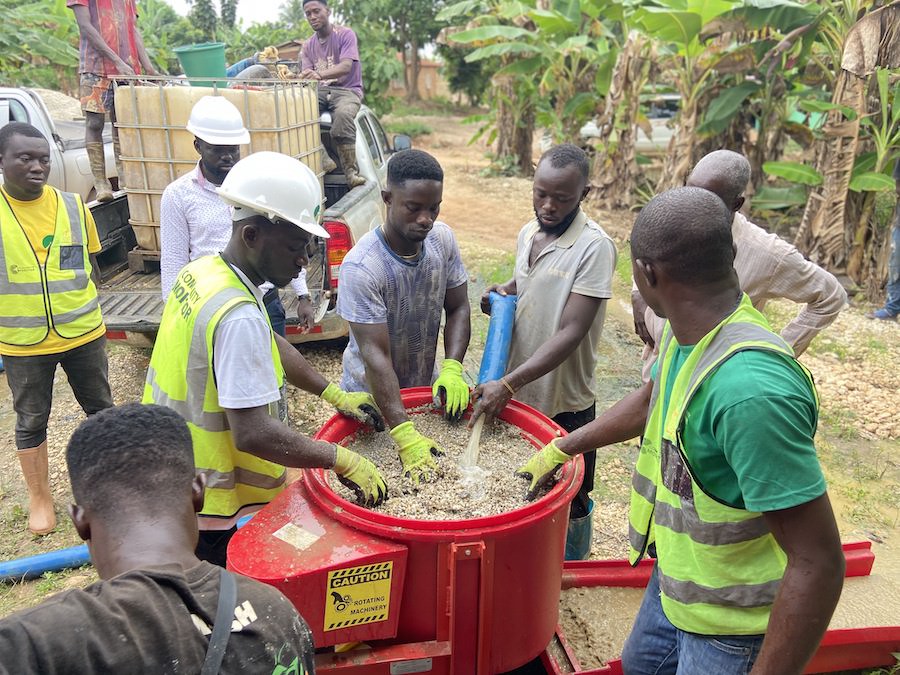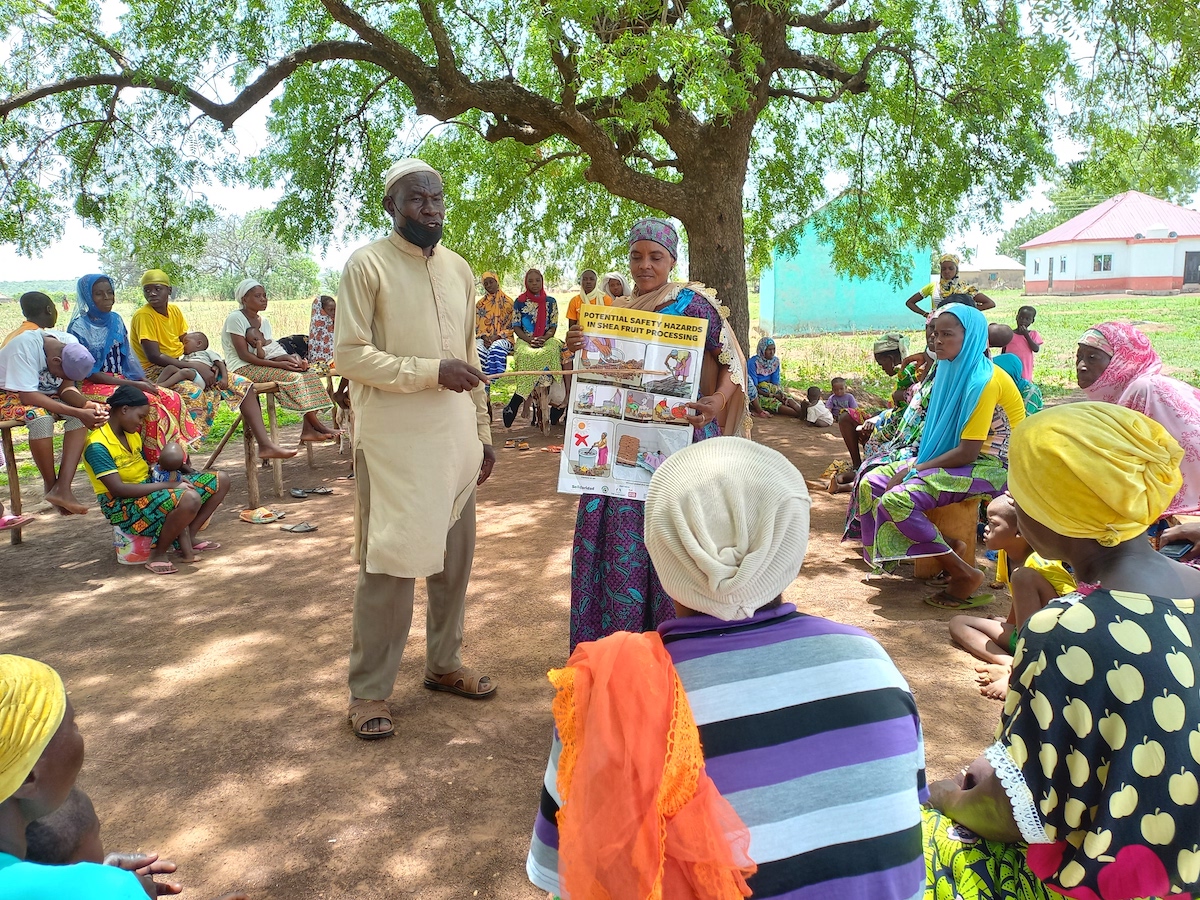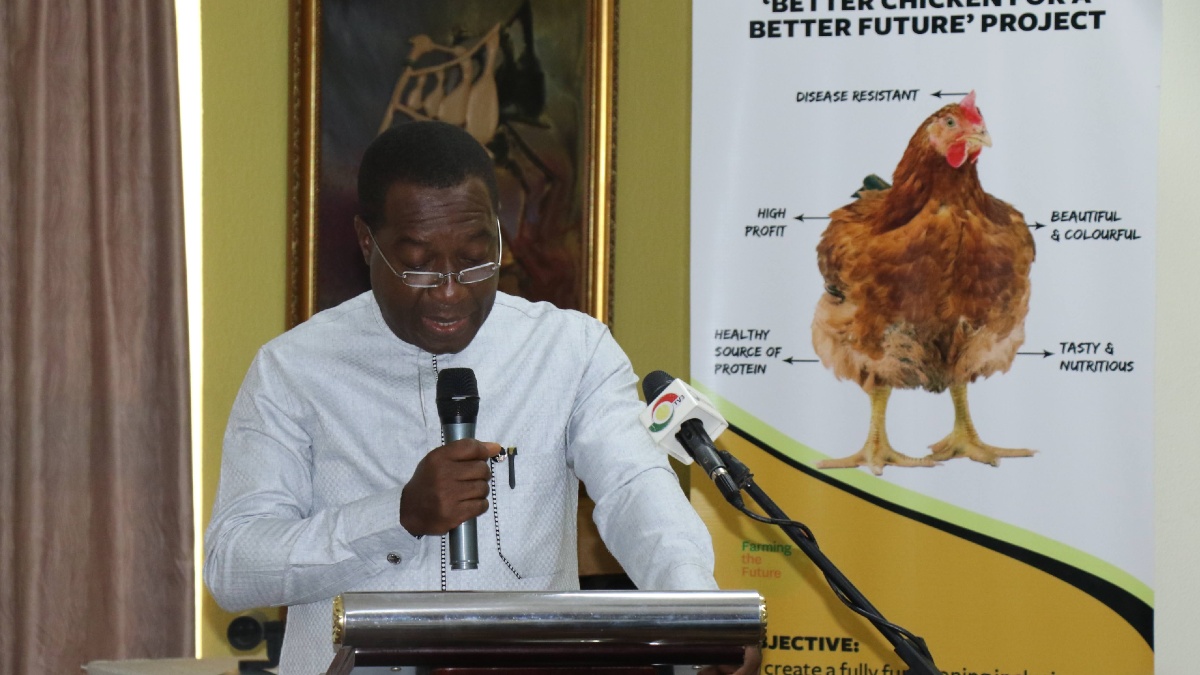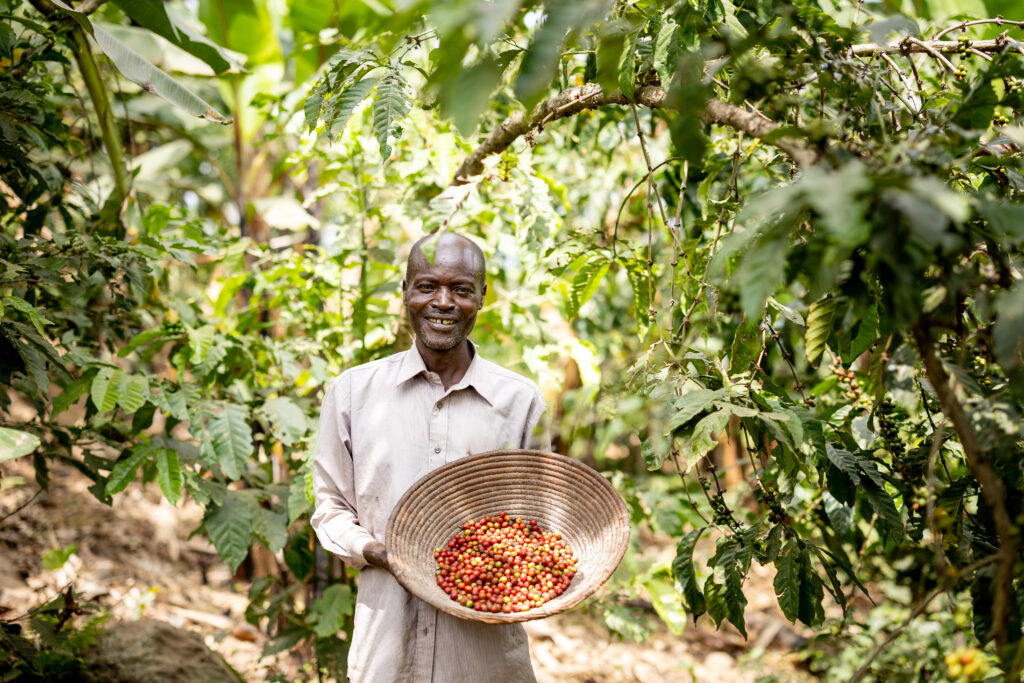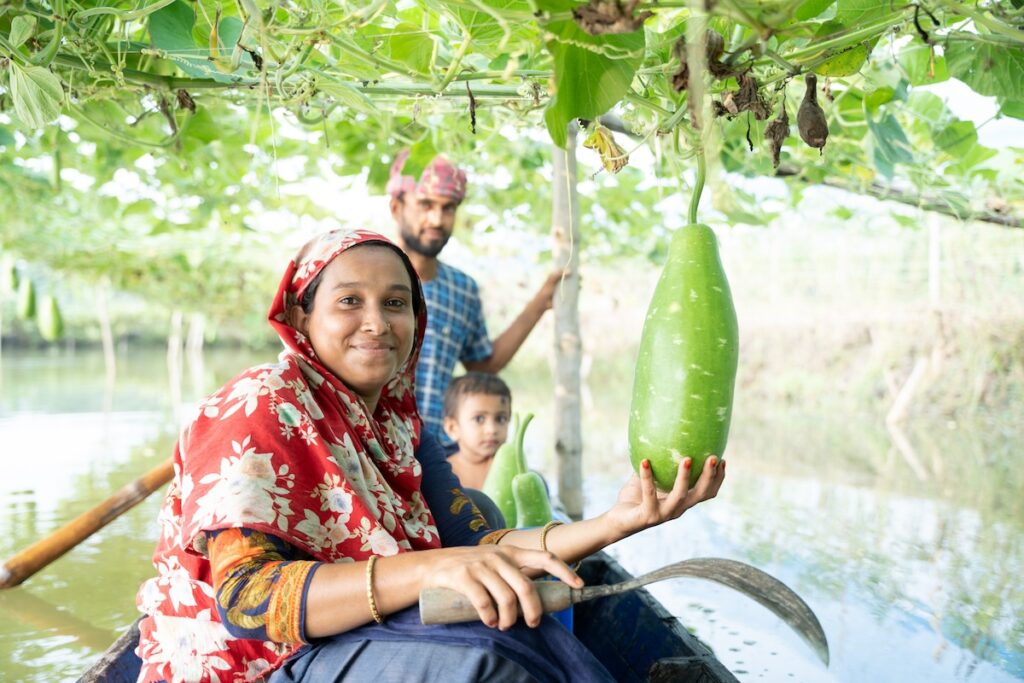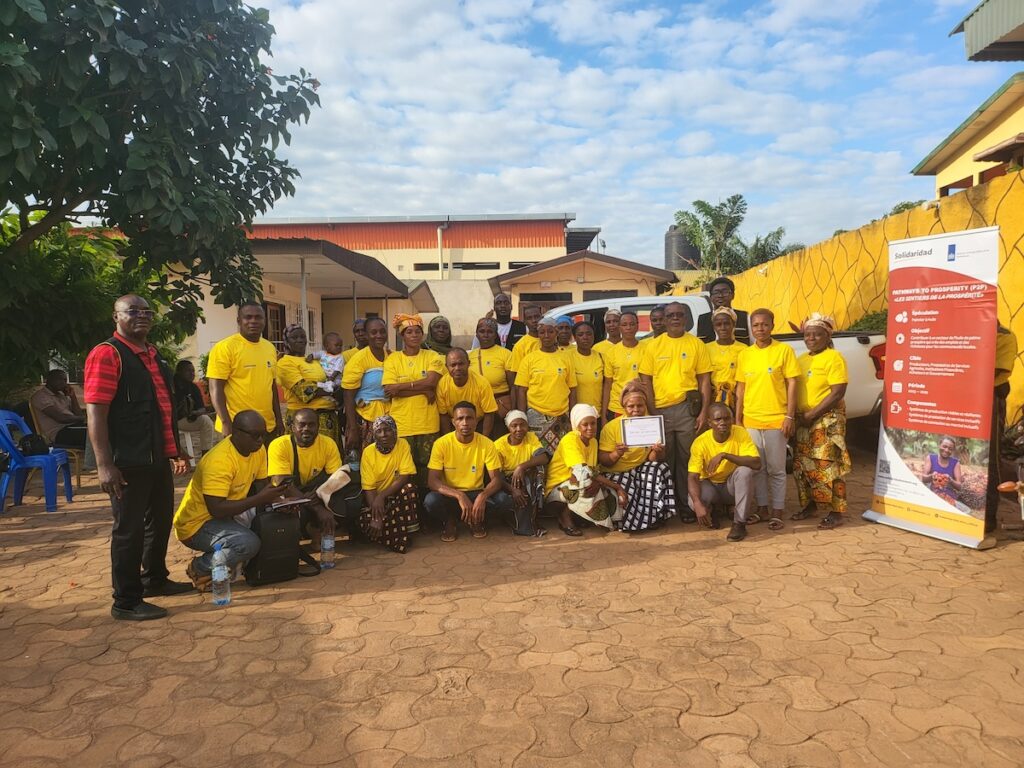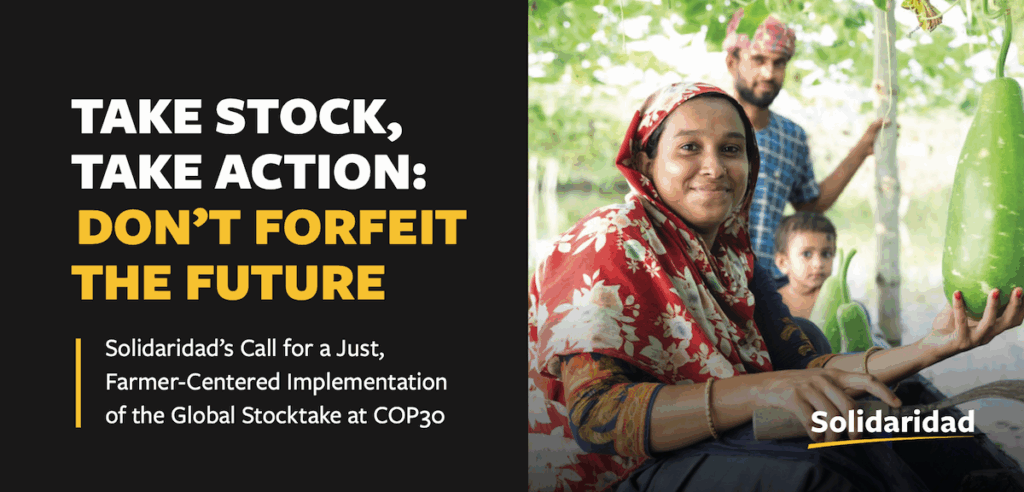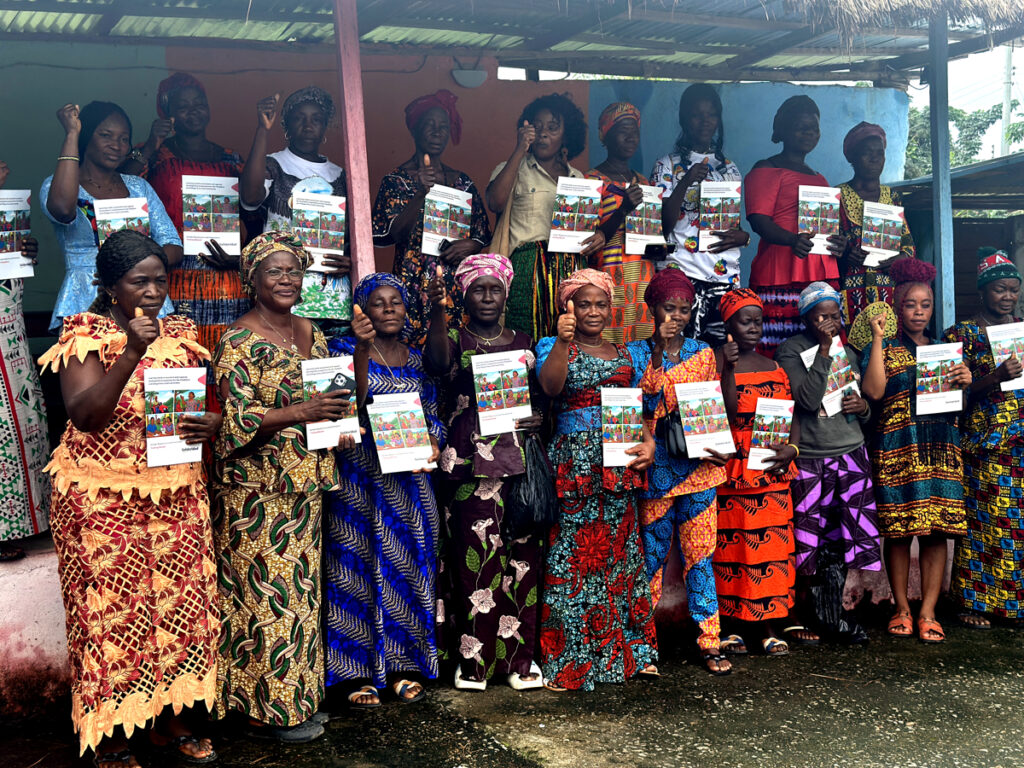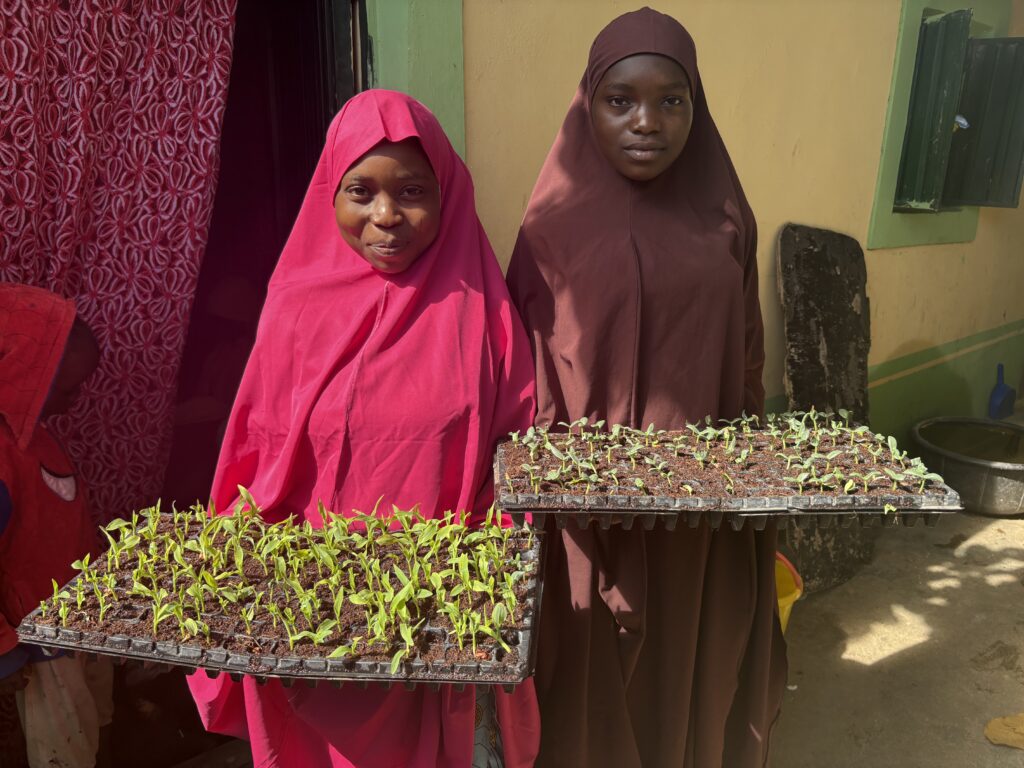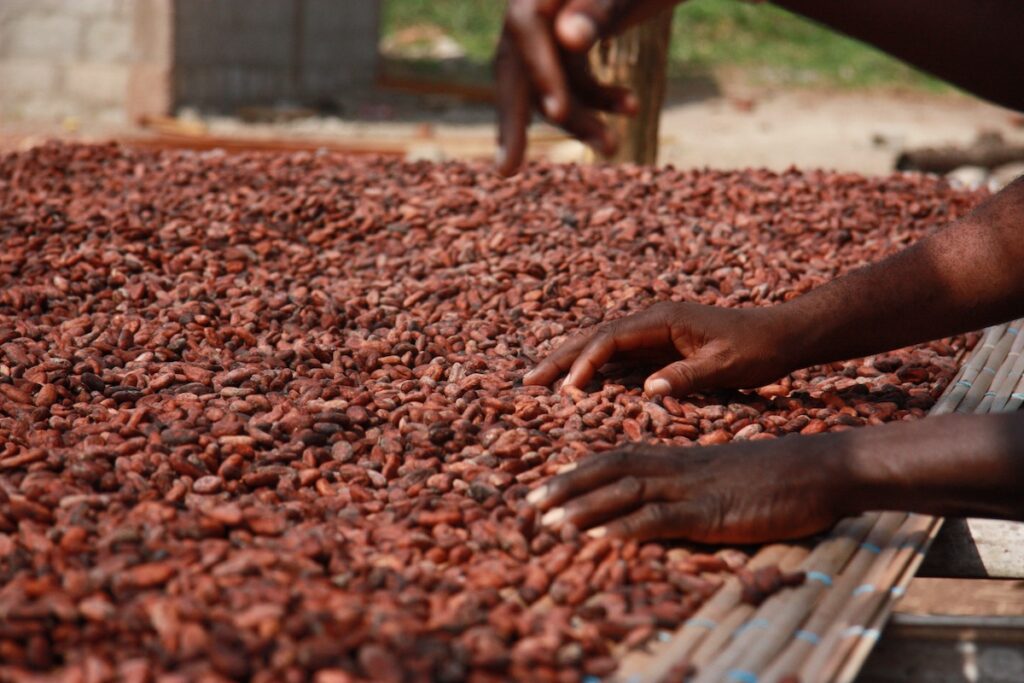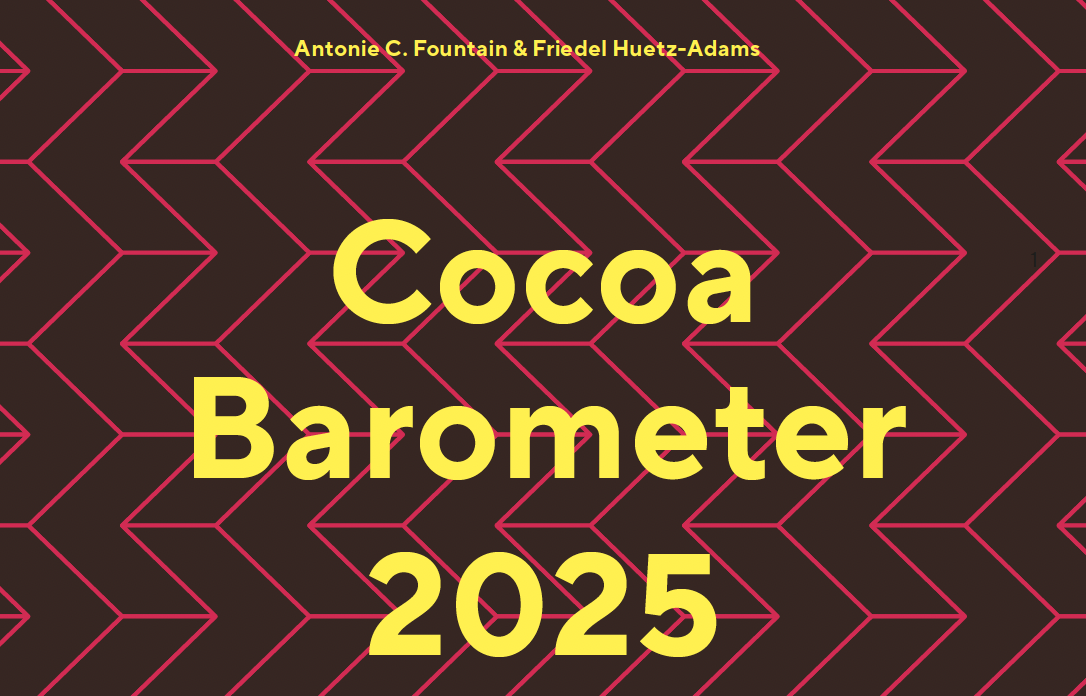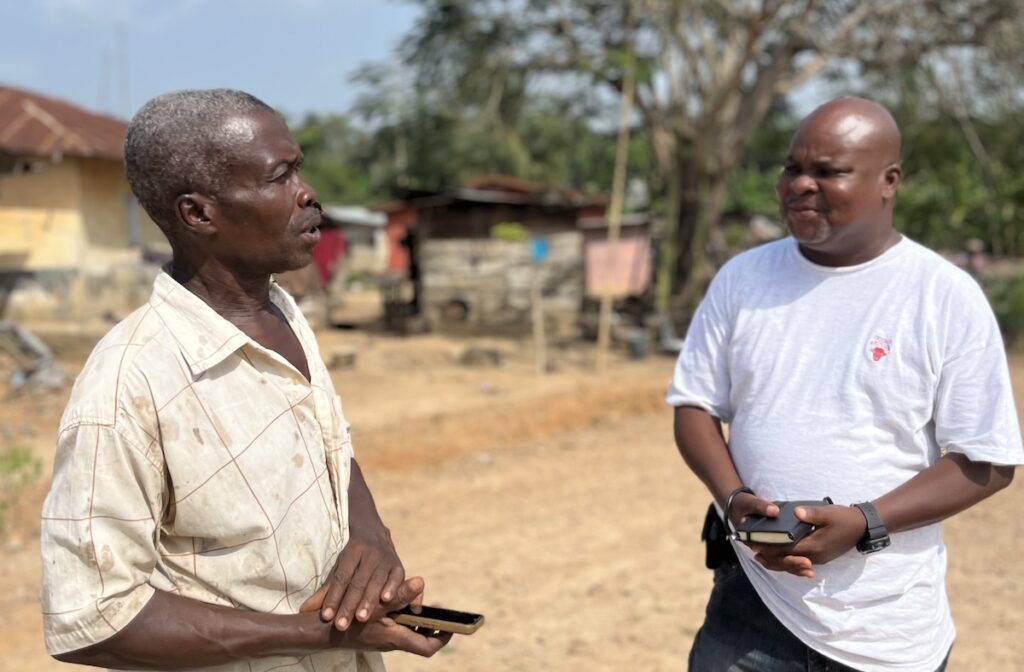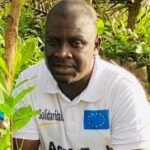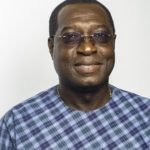Where We Work
We currently have operations in Cote d’Ivoire, Ghana, Liberia, Nigeria, Sierra Leone, Togo and Chad. The region is endowed with large tracts of arable land and a population teeming with youth. However, crop productivity is less than a quarter of optimum global averages. The region is among the hardest hit by the impacts of climate change. A mix of socio-economic policy instruments, innovation, good governance, investments and improved access to finance can facilitate the transformation the region needs.
Commodities

Challenges
Lack of access and investment
The region is hampered by unsustainable production practices, less commercialized farming, unfavorable land tenure, limited youth entrepreneurial skills, degradation of natural resources, low investments and access to finance. These challenges intensify poverty and slow down socio-economic development of communities.
Solutions
Innovation, policy, and collaboration for change
The region has sufficient human and natural resource potential to address the challenges it faces. Producer support programmes, voluntary certification, policy advocacy, food security, landscape management and smart sustainable land use are already creating a wave of change and new opportunities.

Achievements
In 2024, Solidaridad West Africa deepened its influence in shaping policies and equipping small-scale farmers with knowledge and skills in sustainable practices. We championed solutions that enhanced market access, fair prices, financial inclusion, and stronger cooperatives to ensure lasting transformation for smallholder farmers, workers, and agribusinesses across the region.
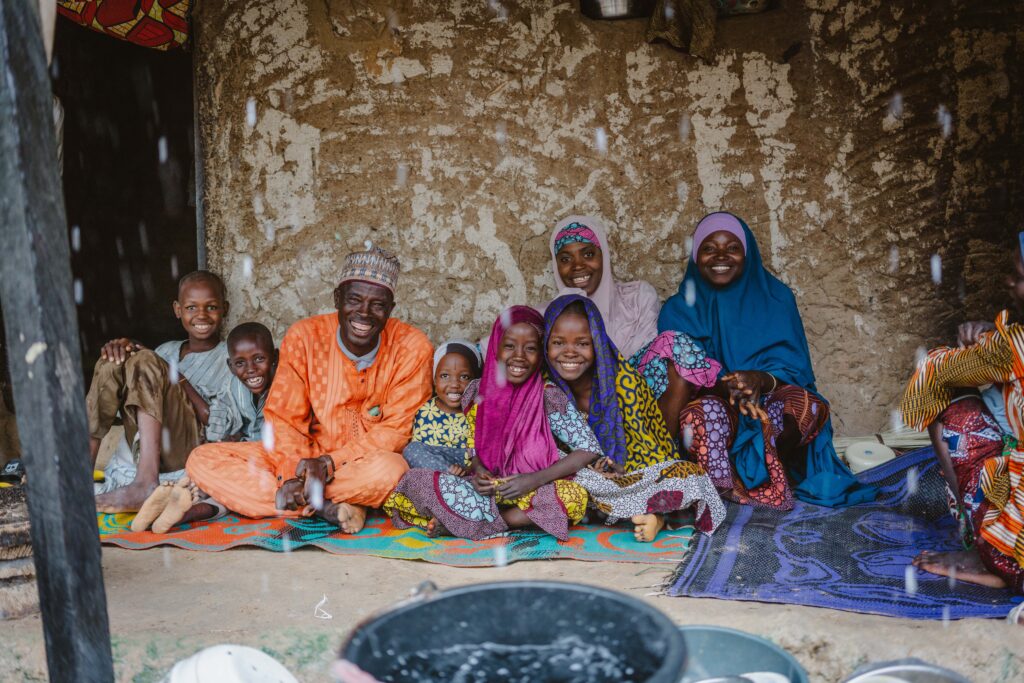
Balancing global and local systems
To balance sustainable global supply chains and create local resilient food systems, Solidaridad West Africa supported 67,177 farmers with inputs and capacity to increase food supply and address market barriers amidst the post-COVID food and economic crises. In 2023, our focus on carbon mitigation and circularity led to the establishment of climate-friendly artisanal oil palm processing mills and a cashew processing factory. We equipped artisanal mines with mercury-free machinery and advocated for the responsible use of mercury.
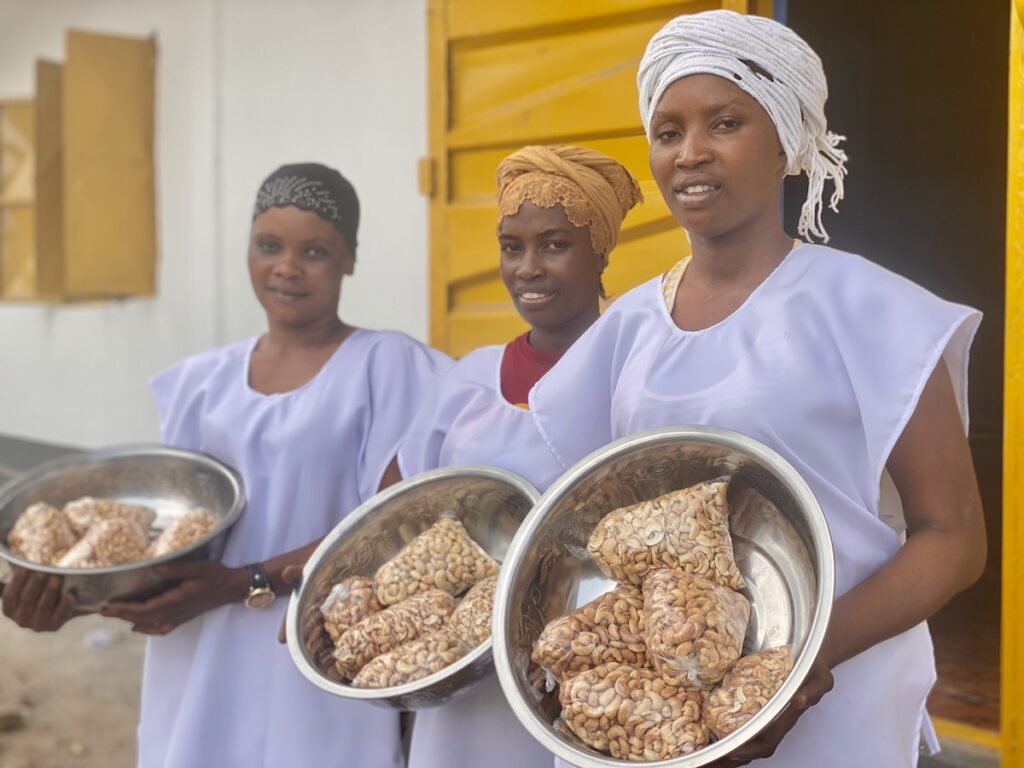
Leveraging partnerships
We leveraged strategic partnerships and digital tools to increase supply chain transparency and market access for smallholders. We successfully lobbied and advocated for sustainable practices and policies that improve the livelihood of farmers and gold producers. Our advocacy work led to the passing of two land bills in Sierra Leone and the adoption of a new pricing arrangement in Ghana.
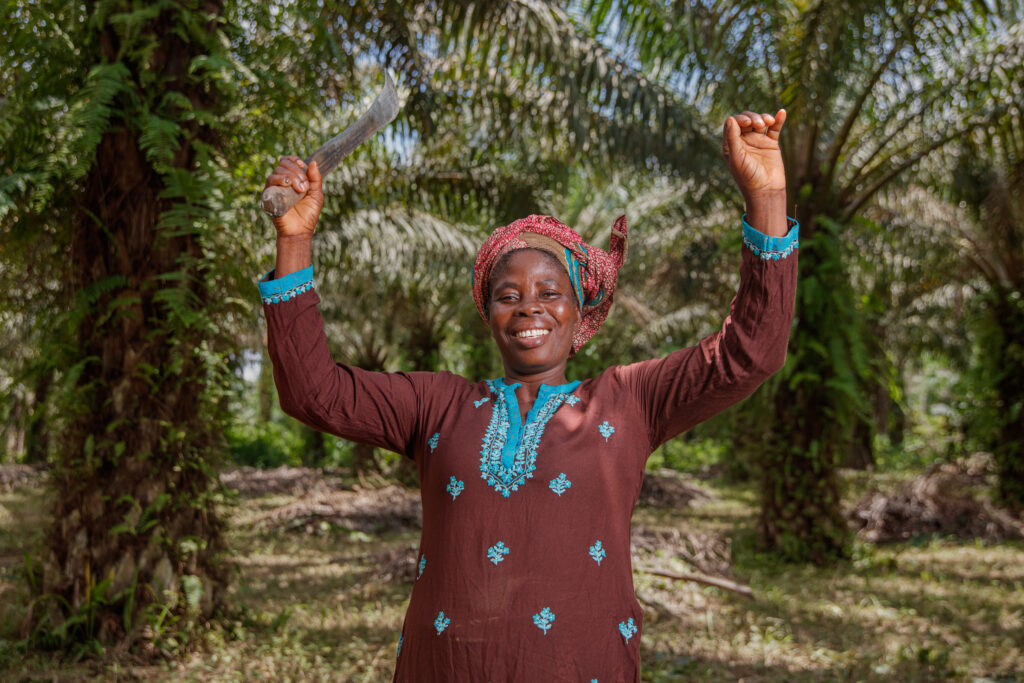
Hitting Targets
In 2021, we trained 103,472 producers and workers in West Africa to improve their production practices, out of which 36,973 are producing sustainably on 71,153 hectares of land. This includes 14,356 cocoa farmers in Cote d’Ivoire who have integrated good agricultural and climate-smart practices in their production processes. Additionally, 17,358 farmers improved their income after applying the knowledge they received through training.
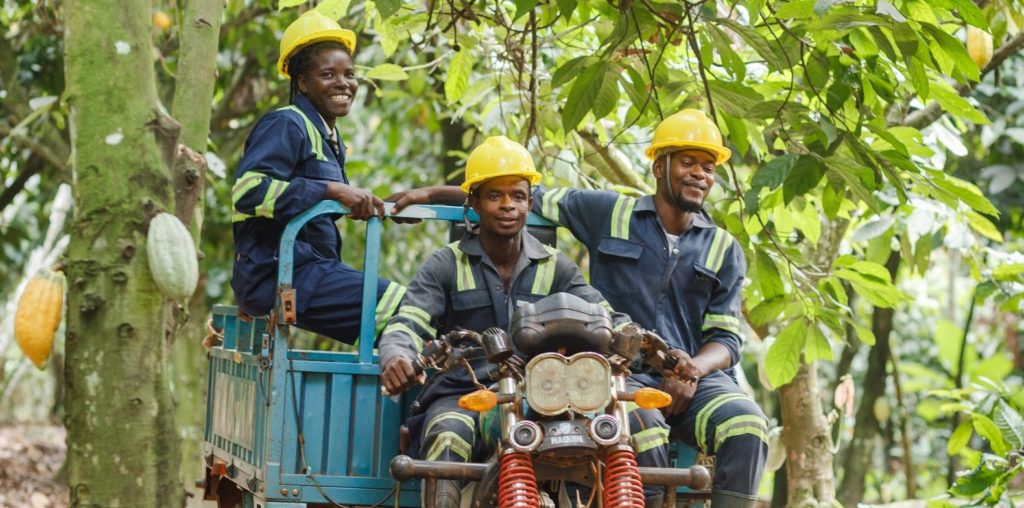
Transforming communities
In 2020, we were able to train more than 95,000 farmers, miners, and workers to improve their practices across more than 90,000 hectares of land. Better environmental practices delivered additional benefits with 47 percent of cocoa farmers in Ghana seeing a marked increase in yield and income. Facing Covid-19 restrictions, we were able to pivot and offer accessible digital support through Interactive Voice Response (IVR) systems, reaching more than 77,000 farmers and miners with technical support. These efforts were rounded out by advocacy efforts that contributed to six policy proposals to decision makers, which resulted in direct government action on topics ranging from land tenure rights to budgetary commitments.
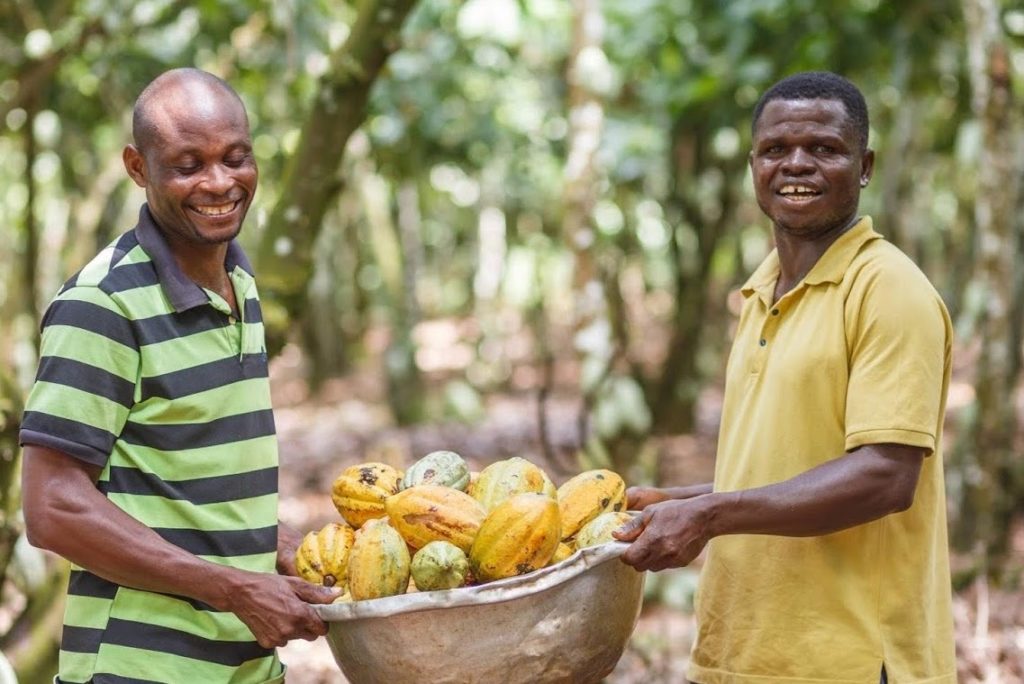
Harnessing partnerships
By working with a range of partners, we contributed to national development agendas in the region. Some 26 initiatives improved practices in cocoa, gold, coffee, cashew, and oil palm. Our work enhanced the quality of life of more than 60,000 smallholder farmers, workers, and small and growing businesses providing agricultural services. By harnessing partnerships, climate-smart practices, and digital innovations, our programmes assured high-performing, impactful interventions.

Driving inclusive solutions
In spite of the fluid development environment, Solidaridad made significant accomplishments in West Africa by driving inclusive and sustainable solutions through smart practices in the cocoa, oil palm, gold and food security-related activities. In 2018, we established more than 60 new partnerships and deepened existing relationships with donors, governments, SMEs and the private sector. Solidaridad West Africa’s target of reaching an ambitious annual budget of 20 million euros was achieved through fundraising and implementing impactful projects and programmes. This contributed to the expansion of activities in the regional operational countries.

Deepening engagements
Despite funding challenges, the year 2017 has been rewarding due to the enormous commitment on the part of the entire staff of Solidaridad West Africa. During the year, Solidaridad deepened engagement with several donors from the European Union including the embassies of Sweden and the Netherlands. This led to the creation of three new funding agreements for programmes.

The business case
Developing and integrating innovative solutions to address supply chain challenges continued throughout the year. Solidaridad focused on validating the business case to establish rural service centres for cocoa farmers as well as the business case for cocoa farming as an enterprise using empirical data. New discussions centred on farmer service enterprises as a crucial factor for success if best management practices are to be scaled up at both the farm and mill levels.

Growing yields
Solidaridad West Africa continued its engagement with supply chain stakeholders in cocoa, oil palm, gold, and maize. This resulted in enhanced capacities of the producers and improved livelihoods of households. Through the promotion and adoption of best management practices and provision of supportive infrastructure, significant yield increases were recorded. For example, there was an average yield increase of about 50% in cocoa, 160% in oil palm and 67% in maize.

Beyond certification
Solidaridad West Africa took its producer support programmes beyond voluntary certification standards by encouraging discussions on a new policy and working with partners to support producers in the various value chains.

Regional Programmes
Change that matters with a partner who cares. Find out what we can achieve together.
Get in touch
Want to know more about our work in West Africa? Get in touch with our team.
View Larger Map
Block 14, Nii Sai Road, East Legon, PMB KD 11
Accra, Ghana
+233 0307001687
ghana@solidaridadnetwork.org
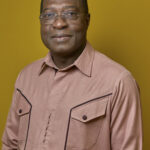
Isaac Gyamfi
Managing Director
isaac.gyamfi@solidaridadnetwork.org

Dr. Winston Asante
Regional Fundraising Coordinator
winston@solidaridadnetwork.org

Gloria Kyeremeh
Editor/Writer & Comms Coordination
gloria.kyeremeh@solidaridadnetwork.org
Continental Supervisory Board
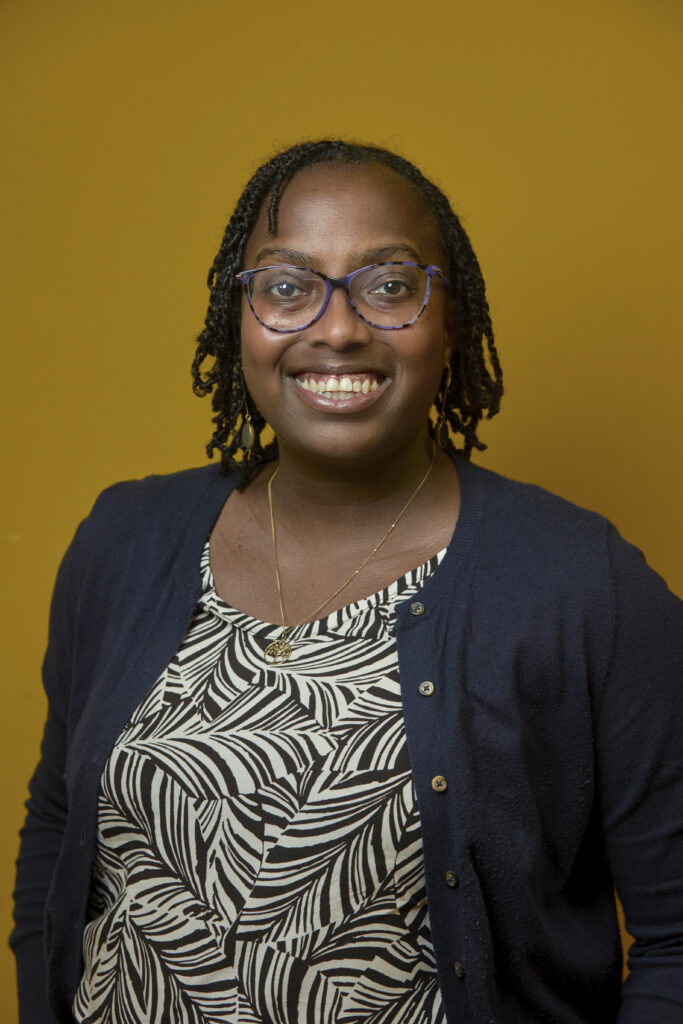
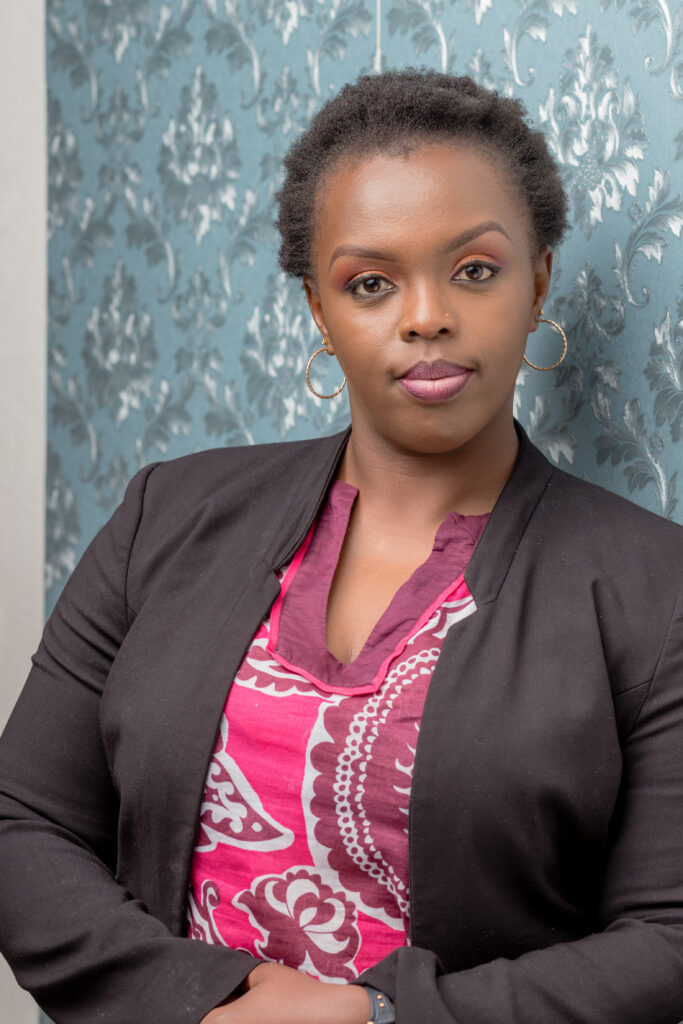
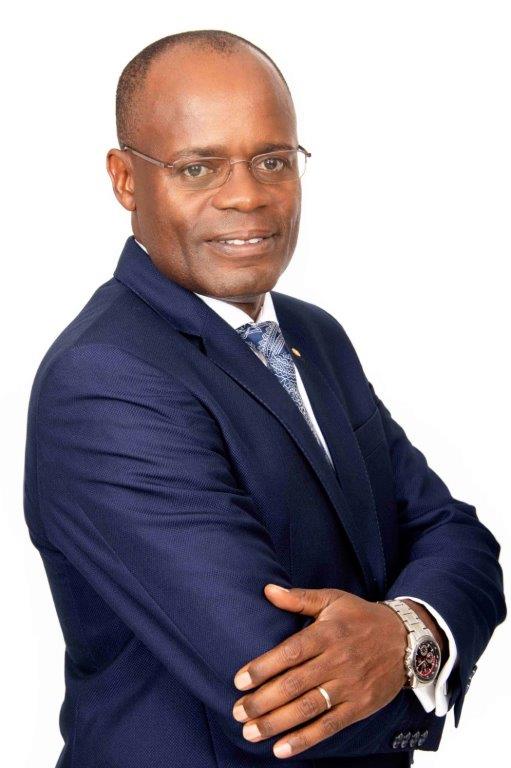

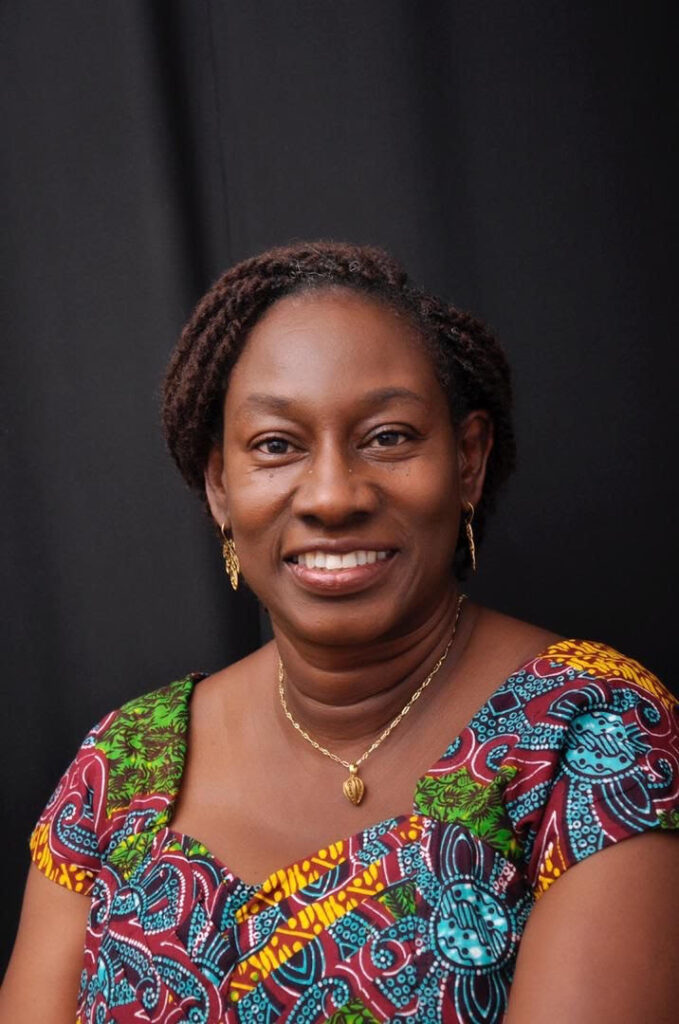
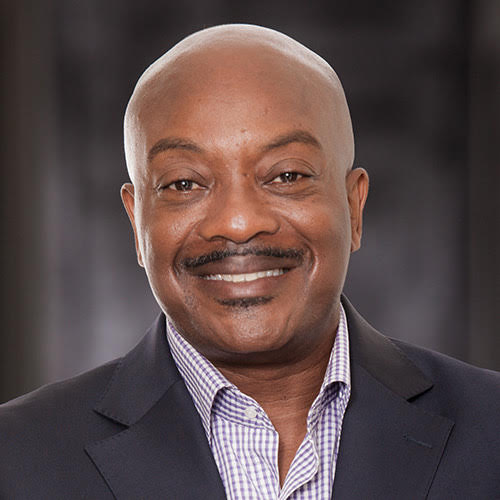

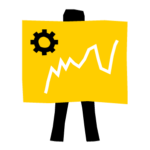
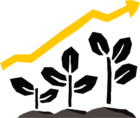

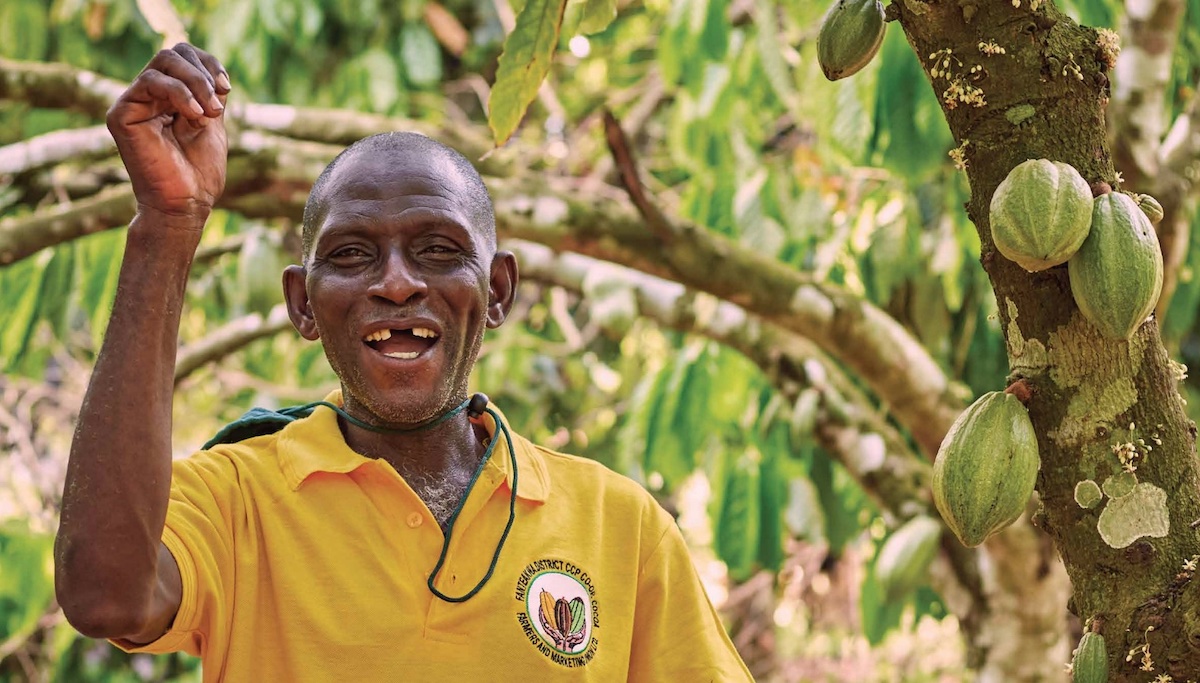
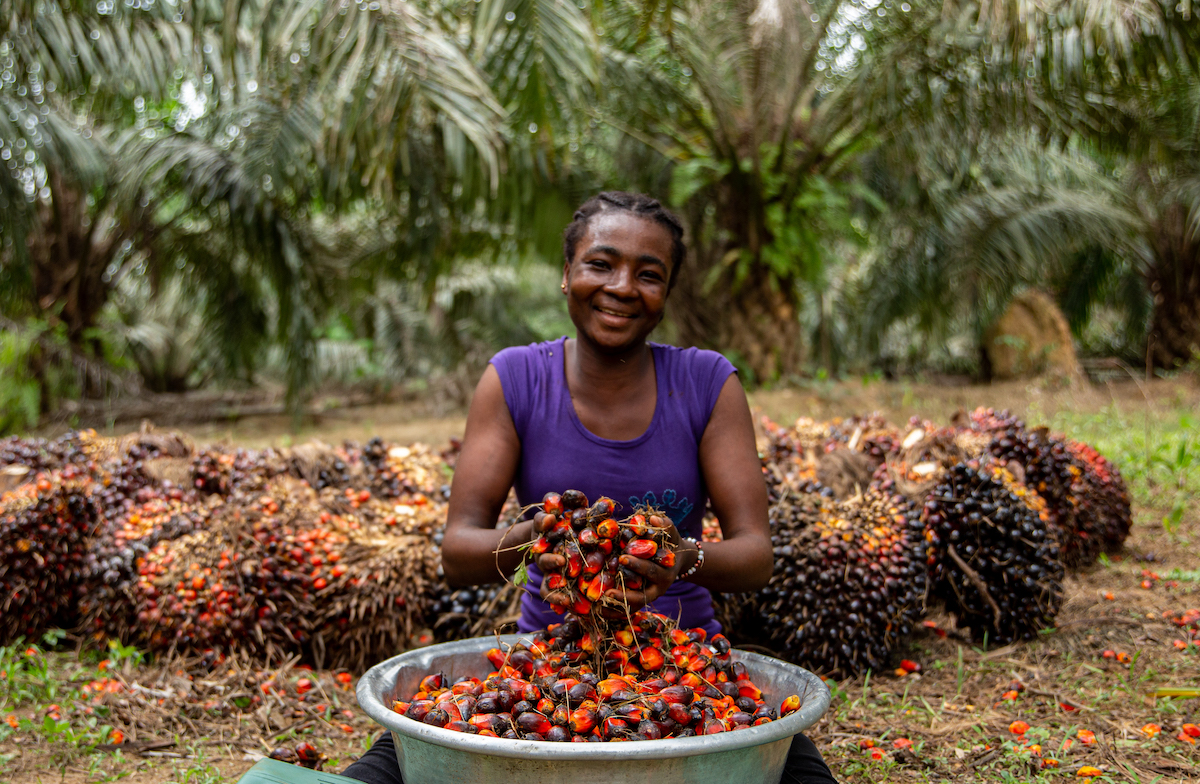
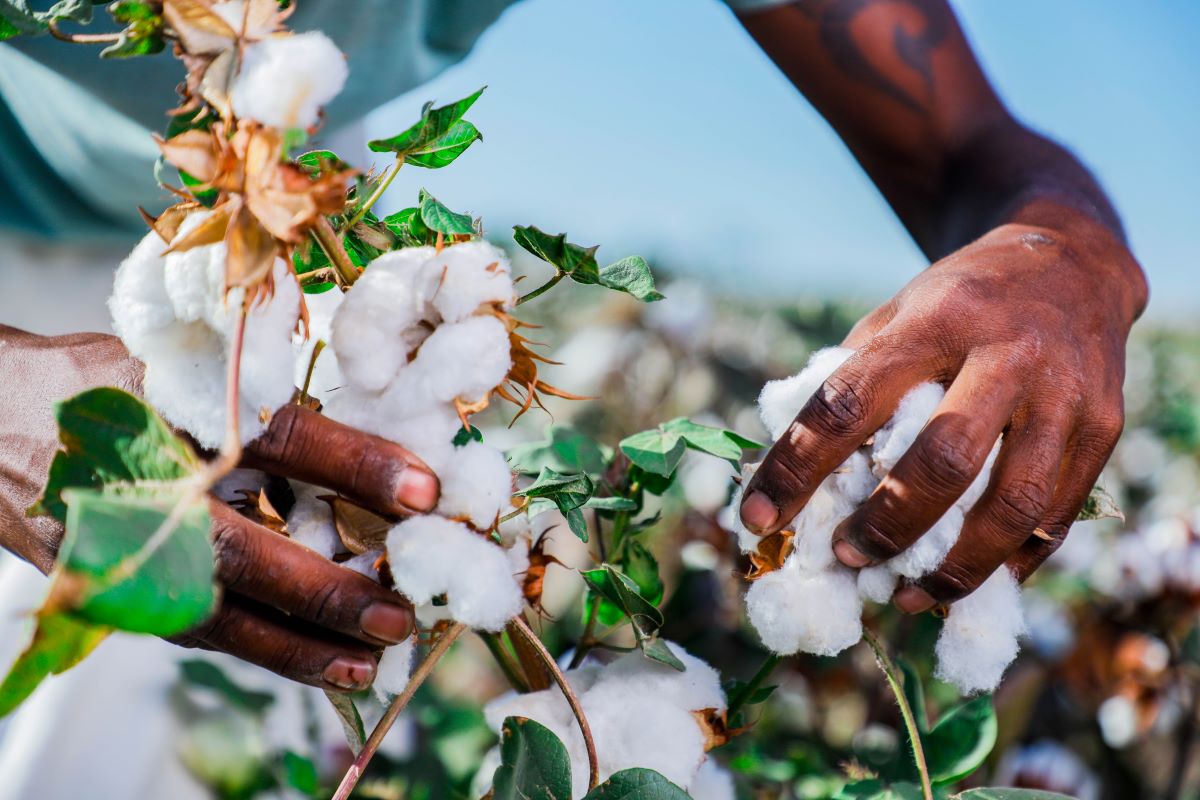
 thumbnail.jpg)

